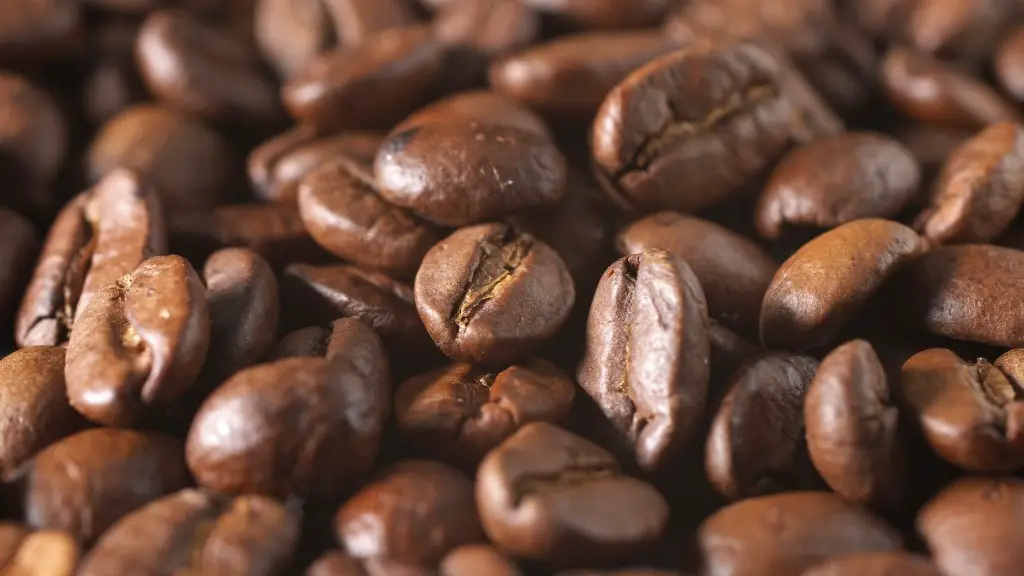Many individuals suffer from heartburn, a burning sensation in the chest caused by the reflux of stomach acids in to the esophagus. Recently, it has been hotly debated whether drinking too much coffee could contribute to this condition.
Most experts caution moderate consumption of coffee. The general consensus is that excessive amounts of coffee can inflame the stomach, leading to symptoms such as heartburn. A study published in The American Journal of Gastroenterology showed that heavy coffee intake–defined as more than five cups a day–was associated with significantly higher levels of gastrooesophageal reflux, acidity, and heartburn.
Artificially-sweetened, caffeinated soft drinks can also make heartburn worse. In a study of 10,000 people, the ones who drank more colas were more likely to report chronic heartburn. Intense stimulants, like coffee, don’t necessary cause the physical condition, but they can worsen symptoms of heartburn. The high acid content in coffee can trigger an increase in stomach acid, and the acidic nature of coffee can be further worsened by adding milk or cream to coffee.
In addition to being acidic, coffee is also a diuretic, which promotes the production of urine. This has a direct effect on the body as it always tries to keep a balance. As water is flushed out through urine, electrolytes are also removed from the body. When this happens, the body starts to absorb water from other areas, like the digestive tract. This can lead to inflammation of the lining of the stomach. For this reason, many people experience heartburn after drinking large amounts of coffee.
It is also observed that drinking coffee on an empty stomach can cause further irritation of the stomach and esophageal lining. Studies have suggested an association between coffee and adverse effects on gastrointestinal and heartburn symptoms, especially when consumed on an empty stomach. In fact, a small digestive system of the stomach may not be able to break down the coffee quickly, leading to a back-up of stomach acid and hence, heartburn.
However, not everyone experiences heartburn even when they drink a lot of coffee. Some people may be tolerant of the effects of coffee. In the same way, it is observed that drinking coffee about two hours after consuming a meal alleviates the possibility of experiencing heartburn. Therefore, it is suggested that people should not drink coffee on an empty stomach and avoid huge amounts of it, because it can be the culprit behind heartburn.
The Relationship of Coffee and Decaffeinated Coffee to Heartburn
The relationship between coffee and heartburn has long been a debate. Studies have shown that decaffeinated coffee can still result in heartburn, especially in those who have gastric problems. Most decaffeinated coffee contains substances like polyphenols and chlorogenic acids, which aggravate the symptoms of heartburn. Additionally, decaffeinated coffee also contains small amounts of caffeine and tannic acid, which trigger the release of gastric acid and consequently, lead to heartburn.
However, some studies have reported better effects from decaffeinated coffee than from caffeinated coffee. For this reason, many experts suggest people who have problems with heartburn should switch to decaffeinated coffee. This can be beneficial as decaffeinated coffee does not contain the stimulating effects associated with caffeine, thus reducing the risk of developing heartburn.
In spite of that, many medical professionals still caution against excessive intake of decaffeinated coffee. According to the American Heartburn Association, those who suffer from frequent heartburn should try to avoid both caffeine and decaffeinated coffee. It is also advisable to try to drink no more than two cups of decaffeinated coffee each day, to be on the safe side.
Herbal Alternatives to Coffee To Reduce Heartburn
Although most health experts suggest reducing the consumption of coffee, it is often a hard task to do as many of us find the flavour and aroma of coffee irresistible. For this reason, many individuals have resorted to consumption of natural, herbal alternatives to coffee, such as chicory or dandelion root. Chicory is a perennial plant of the daisy family that is commonly used as a coffee substitute and has a similar flavour and aroma to that of coffee. Similarly, dandelion root is a related species of chicory with a slightly different taste, but still retains its coffee-like characteristics.
Herbal alternatives to coffee are also often free of caffeine and other substances that can hurt the digestive system. Many herbal alternatives also offer higher levels of antioxidants, which can help reduce the risk of developing heartburn. Moreover, most of these alternatives possess anti-inflammatory properties, which may help reduce the symptoms of heartburn and other gastric problems.
Nevertheless, it is always advisable to check with a doctor before trying any new herbal supplement. Caffeine-free herbal tea and tisanes are also known to help with soothe the digestive system and reduce the risk of heartburn. Furthermore, many people who have sensitive stomachs may find a subtle but pleasant flavour with herbal teas and tisanes, rather than with bitter, acidic coffees.
Lifestyle Changes To Manage Heartburn Symptoms
Health experts have suggested several lifestyle habits to alleviate heartburn and its associated symptoms. Firstly, one should be aware of the food and beverages that trigger heartburn and try to avoid them. Additionally, as stress contributes to heartburn, it is also necessary to find ways to relax and manage stress levels. Regular exercise also helps to decrease stress levels, therefore, it is recommended that one should try to perform light physical activities and maintain adequate sleep.
In addition, it is also suggested to raise the head of the bed to prevent stomach acid from refluxing in to esophagus. Making lifestyle changes such as following a healthy diet and engaging in regular exercises can also help to reduce heartburn by promoting a better overall digestive health. Proper hydration is also essential for female and male health, as it helps to prevent dehydration and potentially improve the digestion and absorption of nutrients.
Lastly, individual should not rush while eating and instead, take time to enjoy the food. Eating meals frequently and avoiding big meals will also be advantageous, as it ensures proper digestion. Similarly, avoiding snacks before bedtime can be beneficial as well, as this can prevent the possibility of having a full stomach when lying down.
Over the Counter Drugs and Supplements to Manage Heartburn
In some cases, lifestyle modifications may not be enough to alleviate the symptoms of heartburn. In such circumstance, many individuals seek medical advice and opt for over-the-counter medications in order to manage their heartburn. Generally, these medications contain ingredients such as antacids, H2 blockers, and proton pump inhibitors (PPIs), which help to reduce the amount of acid that is produced in the stomach and reduce the symptoms of heartburn.
When prescribing medications, doctors often consider the duration and intensity of the symptoms, as well as the overall health condition of the individual. If the symptoms persist even after several weeks on such medications, it is suggested to seek medical advice from a gastroenterologist. Furthermore, medical professionals suggest that it is always better to go for natural medications over the counter drugs in order to prevent the side effects which can come with the latter.
Similarly, mild dietary supplements such as probiotics and digestive enzymes can also help in reducing heartburn. Probiotic foods and supplements can be beneficial in restoring the balance of healthy bacteria in the digestive system and promote better digestive health. Digestive enzymes can help as well as they help to break down the food particles that cause heartburn. Many herbal tea remedies also contain ingredients such as ginger, peppermint, and chamomile, which can help to reduce the symptoms of heartburn.
Natural Prevention Strategies To Avoid Heartburn
As the old saying goes, prevention is better than cure. In terms of heartburn, it is often better to prevent it from occurring in the first place. Unfortunately, there is no one-size-fits-all approach to heartburn prevention, as it highly depends on the lifestyle and dietary habits of the individual. That said, here is a list of some natural steps one can take to avoid heartburn:
- Eat smaller, frequent meals instead of larger meals
- Reduce transfats and processed foods from diet
- Limit the consumption of alcohol, tobacco and caffeine
- Avoid eating too close to bedtime
- Incorporate adequate exercises in daily routine
- Maintain stress levels by practising relaxation techniques
- Practice mindful eating
- Sit upright after meals
Heartburn is a common condition and can have a big impact on one’s life. It is important to be aware that excessive consumption of coffee can lead to heartburn. Although there is no conclusive evidence of a relationship between coffee and heartburn, people are advised to drink in moderation if they suffer from this condition. However, if the symptoms persist, then seeking medical advice is recommended.





